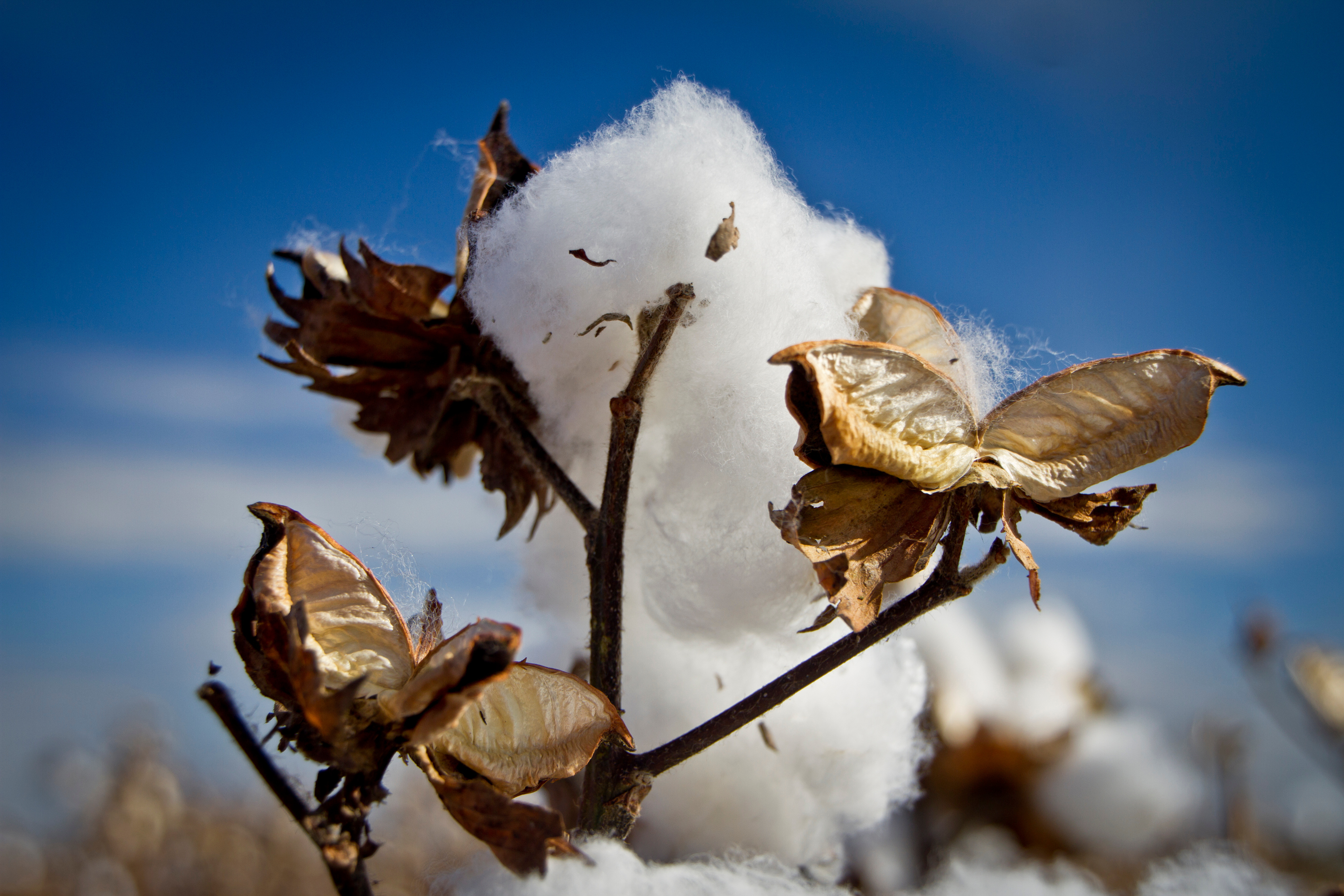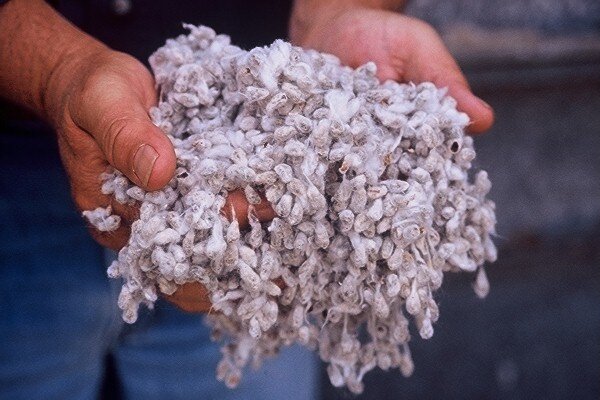Products and uses
- Cotton is a food and a fibre crop.
- Cotton can be used to make clothes, homewares, and industrial products.
- Cotton seed can be used as stock feed.
Cotton lint
Cotton is known for its versatility, performance and natural comfort.
Cotton’s strength and absorbency makes it an ideal fabric to make clothes and homewares, and industrial products like tarpaulins, tents, hotel sheets, army uniforms, and even astronauts’ clothing choices when inside a space shuttle. Cotton fibre can be woven or knitted into fabrics including velvet, corduroy, chambray, velour, jersey and flannel.
Cotton can be used to create dozens of different fabric types for a range of end-uses, including blends with other natural fibres like wool, and synthetic fibres like polyester.
In addition to textile products like underwear, socks and t-shirts, cotton is also used in fishnets, coffee filters, tents, book binding and archival paper.
Linters are the very short fibres that remain on the cottonseed after ginning, and are used to produce goods such as bandages, swabs, bank notes, cotton buds and x-rays.
The cotton lint from one 227kg bale can produce 215 pairs of denim jeans; or 250 single bed sheets; or 750 shirts; or 1,200 t-shirts; or 3,000 nappies; or 4,300 pairs of socks; or 680,000 cotton balls; or 2,100 pairs of boxer shorts.

One 227kg bale of cotton can produce the following quantities of each item:
Cotton seed
Cotton is a food and a fibre crop. Cottonseed, which makes up around half the weight of the picked cotton, is fed to cattle and crushed to make oil. One tonne of cotton seed yields approximately 200kg of oil, 500kg of cotton seed meal and 300kg of hulls.
Cottonseed oil is cholesterol free, high in polyunsaturated fats and contains high levels of anti-oxidants (vitamin E), which contribute to its long shelf life. This cotton seed oil is used for cooking and in products like soap, margarine, emulsifiers, cosmetics, pharmaceuticals, rubber and plastics.
The by-product of the oil-extraction process is meal, which is used as stock feed. Cotton seed meal is a high protein meal that can be fed to most animals. Cotton seed hulls are also a valuable feed source for livestock.
Global cotton seed production can potentially provide protein requirements for hundreds of millions of people and animals.

